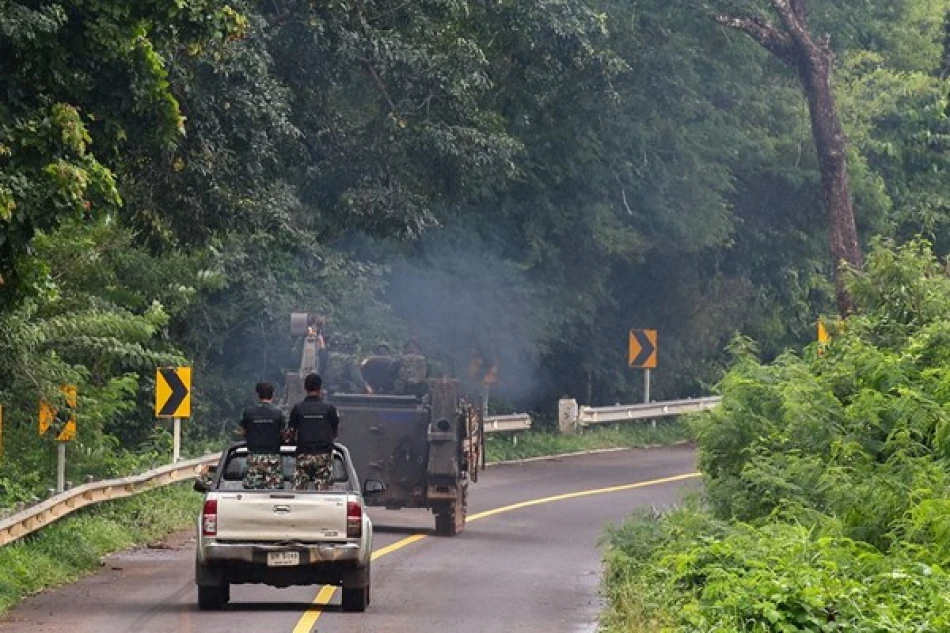
Thai and Cambodian Leaders Convene in Malaysia to Resolve Border Dispute
Malaysia Steps In as Regional Mediator as Thailand-Cambodia Border Tensions Escalate
Malaysia has emerged as the chosen mediator in the intensifying border conflict between Thailand and Cambodia, with both nations' leaders set to meet in Kuala Lumpur Monday for crucial peace talks. The diplomatic intervention comes as artillery exchanges continue along disputed territories, marking a significant test of ASEAN's conflict resolution mechanisms.
High-Stakes Diplomacy in Kuala Lumpur
Cambodian Prime Minister Hun Manet and Thai Acting Prime Minister Phumtham Wechayachai are expected to arrive in Malaysia Monday evening for emergency talks aimed at ending the hostilities. Malaysian Foreign Minister Mohamad Hasan confirmed Sunday that both countries had specifically requested Malaysia's mediation role, demonstrating remarkable trust in the nation's diplomatic capabilities.
"They have complete confidence in Malaysia and asked me to be a mediator," Hasan told the Bernama news agency, emphasizing that all parties agreed to exclude other nations from the mediation process.
ASEAN's Regional Leadership Put to the Test
The mediation effort follows Malaysian Prime Minister Anwar Ibrahim's Friday ceasefire proposal, leveraging Malaysia's current chairmanship of the Association of Southeast Asian Nations (ASEAN). This represents a critical moment for the regional bloc's ability to manage internal conflicts without external intervention.
The timing is particularly significant as ASEAN faces growing pressure to demonstrate its relevance amid broader regional tensions. Malaysia's successful mediation could strengthen the organization's credibility as a conflict resolution mechanism, while failure might expose the limitations of Southeast Asian diplomatic unity.
International Attention and Stakes
The conflict has drawn attention from major powers, with former U.S. President Donald Trump stating Saturday that both leaders had agreed to work toward a ceasefire. This international interest underscores the potential for the border dispute to destabilize broader regional security arrangements.
Historical Context and Border Complexities
Thailand and Cambodia share a complex 800-kilometer border that has been a source of periodic tensions for decades. Previous flare-ups have typically centered on territorial disputes near ancient temple sites and poorly demarcated boundary areas, often escalating during periods of domestic political instability in either country.
The current escalation follows a familiar pattern where both sides accuse each other of initiating artillery strikes, creating a cycle of retaliation that threatens civilian populations in border areas. Such conflicts have historically required third-party mediation to break the cycle of accusations and counter-accusations.
Malaysia's Strategic Diplomatic Position
Malaysia's selection as mediator reflects its unique position within ASEAN as a nation with strong ties to both Thailand and Cambodia, yet without direct territorial stakes in their dispute. This neutrality, combined with Malaysia's current ASEAN chairmanship, positions Kuala Lumpur as an ideal venue for de-escalation talks.
The exclusive bilateral approach, specifically rejecting involvement from external powers, signals both countries' preference for regional solutions over great power intervention. This could set a precedent for how ASEAN handles future internal conflicts, potentially strengthening the bloc's autonomy in regional security matters.
The success or failure of Monday's talks will likely influence not only Thailand-Cambodia relations but also ASEAN's credibility as a mediator in regional disputes, with implications for Southeast Asian diplomatic independence in an increasingly multipolar world.
Most Viewed News

 Layla Al Mansoori
Layla Al Mansoori






